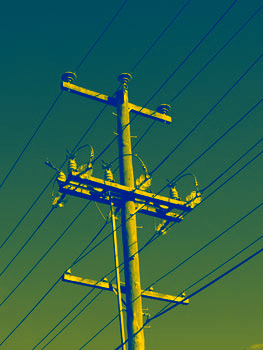ASIC to check power pole report claims
 A furore is forming over a UBS report into the election promises of the NSW Liberal party.
A furore is forming over a UBS report into the election promises of the NSW Liberal party.
UBS published a report about the Baird Government's power asset privatisation plans this week, originally titled “Bad for the budget, good for the state”.
The report detailed how leasing the state’s electricity assets could provide some short-term benefits, but would hurt the budget over the long term.
The bank – which is advising the NSW Government on the plans – later reissued the report with a few additions and alterations, and the new title “Good for the state”.
Premier Mike Baird has admitted that the Government contacted the bank after the first report came out, but says the bankers chose to amend it on their own.
The NSW Opposition has now referred the matter to the Australian Securities and Investments Commission (ASIC).
Shadow Treasurer Michael Daley said “research analysts from banks must be left alone to issue their reports without pressure from clients and without pressure from government”.
“That is the law,” he told reporters.
“What pressure was brought to bear? Who from the Government or the Premier's office called UBS bank?” Daley asked.
“Were they threatened? Were inducements made?”
Mr Baird said the report was changed after UBS analysts became aware that they had not taken into account some potential impact im the economic modelling.
Meanwhile, former NSW Labor treasurer Michael Costa has penned a piece for News Corp’s Daily Telegraph newspaper, accusing his former party of producing “lie after desperate lie” in an attempt to scare voters into rejecting the power privatisation plan.
New South Wales has been “cursed with a dishonest debate on electricity privatisation” for more than 20 years, Mr Costa wrote.
“This election, unfortunately, sees a continuation of this dishonesty.
“The electricity unions and their supporters recognise that this election could resolve this issue once and for all.
“And so lie after desperate lie is being thrown at the public in an attempt to frighten the electorate into rejecting the Baird Government's sensible and moderate reforms to the electricity industry.”







 Print
Print